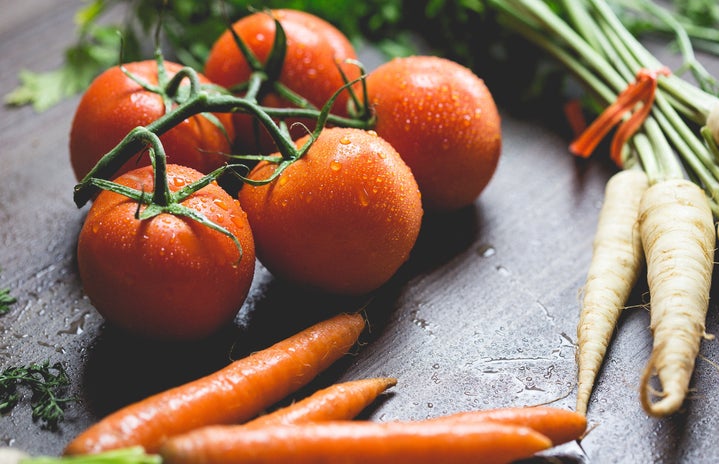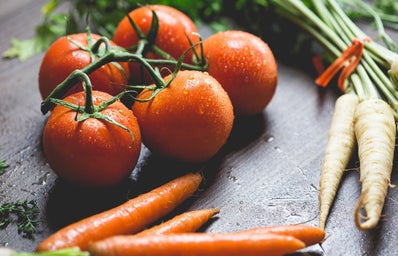I know some vegetarians have a bad rep for being “annoying”, and often thought of as being preachy, but bear with me, just this once. I have been a vegetarian for 12 years now, and I have never been happier. My health improved in several different ways. For instance, I have a type of enzyme deficiency that causes me to have certain food intolerances, and vegetarianism alleviated this in many ways. And so, after researching how every bite of food we consume has its own environmental consequence and how we can stop the rapid consumption of Earth’s resources, slow the threat of climate change, and help conserve our world for future generations by decreasing our use of animal products, I knew shifting to vegetarianism was the right call. Vegetarian and vegan diets have a lower environmental effect and are more sustainable in the long run.
Although, I recognize that being a vegetarian has its challenges, such as going to a restaurant and only having three meal options to choose from, having to surround yourself with family members that do not understand your diet, or people immediately assuming you want to convert them into your lifestyle. I do encourage you to expand your knowledge of the topic, and then maybe acquire a different perspective on it all. I’m not asking you to stop eating meat, but instead inviting you to be more mindful of the amount you’re consuming and how it affects your diet and the environment.
Without further ado, here are the main environmental advantages of a vegetarian lifestyle:
- Decrease in water consumption : Because raising and feeding livestock requires more water than agriculture, reducing your meat consumption might be beneficial for the environment in the long run. For a clearer picture, the production of a single kilo of meat consumes around 18,500 liters of water, while a portion of rice only needs 100 liters.
- Fuel economy: Both the transport and maintenance of meat are processes that require more fuel than vegetable production. For example, 1 calorie of protein from animal sources requires 54 calories from fossil fuel to produce, while 1 calorie from plant sources (soy) uses only 2 calories from fossil fuel.
- Forest protection: Around 6 million hectares of forests are cut down each year to feed and store animals, later used for human consumption.
- Reduction of greenhouse gasses: Meat refrigeration processes generate 37% of the methane emissions produced by human activity, being one of the greenhouse gasses with the greatest impact.
The advantages of a vegetarian diet for human health are well known, but nevertheless, vegetarianism is also very beneficial for the environmental and ecological balance of the planet. Consequently, by adopting a vegetarian diet or incorporating more vegetables and fruits into your daily diet, you will be increasing your well-being and, at the same time, you will contribute your part to care for the planet.


